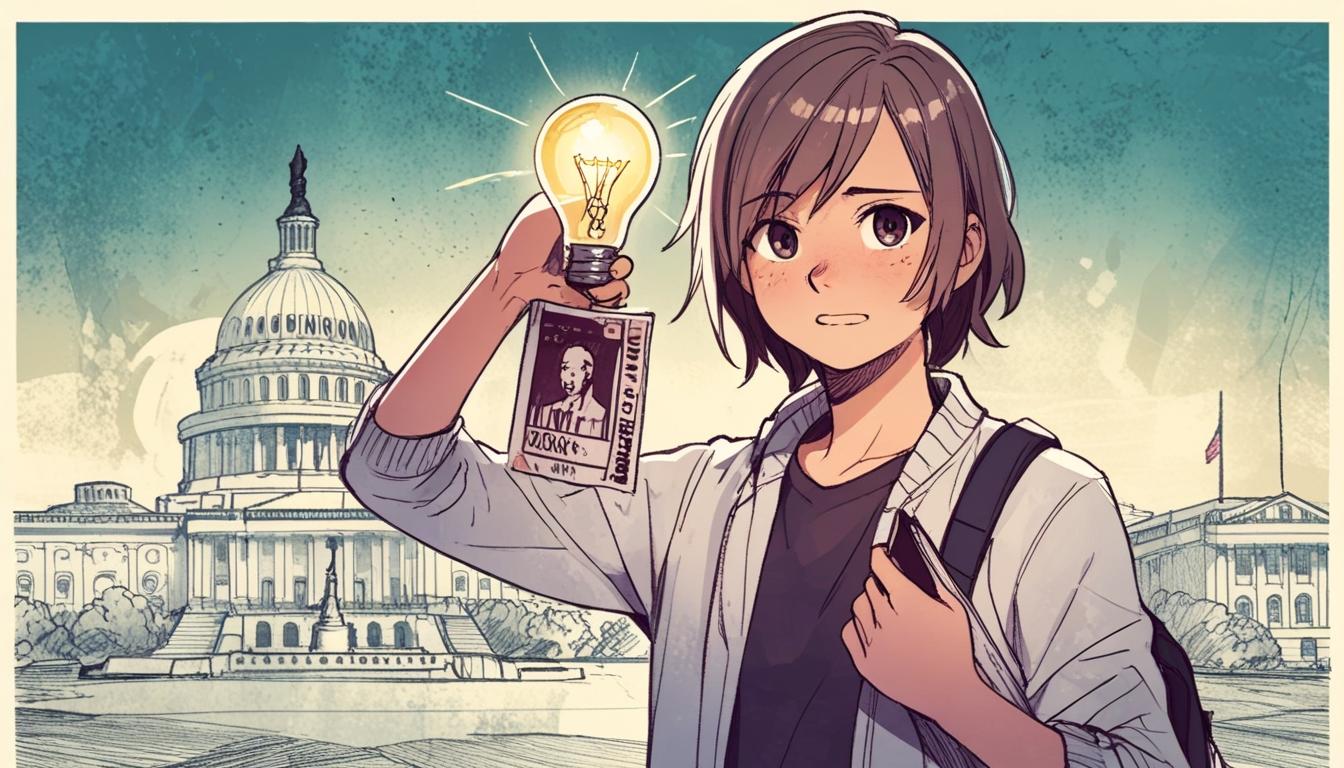Recent visa revocations and funding freezes targeting international students in the US are causing alarm among experts, who warn that such measures could undermine the country’s scientific progress and technological leadership amid growing competition from China.
The Washington Post is reporting that recent actions taken by the U.S. administration against international students and scholars are causing significant concern among experts and analysts about the future of American innovation and technological competitiveness, particularly in relation to China.
Over the last month, approximately 1,400 international students and scholars have experienced visa revocations or termination of their exchange records. The reasons cited for these actions have often been as minor as dismissed traffic tickets, with no links to security threats, protests, or criminal charges, according to Angela Shen, a technology analyst for the ChinaTalk podcast, and Jordan Schneider, its founder. This lack of transparency and consistency has created a climate of confusion and fear among the affected individuals.
Further complicating matters, Homeland Security Secretary Kristi L. Noem reportedly warned that Harvard University could face restrictions on admitting international students. At the same time, there has been a sudden freeze and elimination of research grants within the higher-education system, adding to the instability faced by current international students.
Angela Shen and Jordan Schneider emphasise that foreign talent has been a cornerstone of American scientific discovery and technological advancement over the past century. International students represent roughly 42 percent of STEM PhD graduates in the United States and generally pay full tuition, which helps subsidise American education and supports academic programs financially. Additionally, around three-quarters of these international STEM graduates choose to remain in the U.S. after completing their studies, contributing significantly to innovation, particularly through patents and entrepreneurial endeavours. For example, studies cited indicate that immigrants have contributed to 36 percent of American innovation in recent decades, and 60 percent of top U.S. artificial intelligence companies were co-founded by immigrants who often arrived on student visas.
The analysts warn that the current crackdown and uncertainties around visas and research funding threaten this critical talent pipeline. They note that other countries are actively recruiting international STEM students who might otherwise have chosen the U.S., thereby undermining America’s technological future while China accelerates its own advancements. They highlight that China retains about 90 percent of STEM PhD graduates from American institutions who come from China and has implemented robust talent recruitment programmes to attract scientists and researchers back home, offering funding, support, and resources to encourage their return.
The article draws attention to legislative proposals in the U.S., including a Republican-sponsored bill aiming to restrict the admission of Chinese students to American institutions, which, while unlikely to pass, signals a broader trend of heightened restrictions and scepticism towards Chinese nationals.
Despite these challenges, international researchers have generally preferred the U.S. for education and career opportunities despite its complex immigration system. Nonetheless, incidents where seemingly minor infractions threaten the status and future of international students have eroded trust. Parents and prospective students must now consider not only the high cost of tuition but also the risk that their studies may be disrupted by immigration actions. This environment discourages international talent from committing to the U.S. and may result in a long-term decline in American innovation capacity.
The analysts note that President Donald Trump has previously advocated for policies to attract and retain foreign graduates in the U.S. workforce, such as automatically granting green cards to foreign graduates of American institutions. Yet, the current approach appears contradictory, threatening the very goals the administration has championed. Trump has invoked historical figures such as Vannevar Bush, who once emphasised the importance of universities and research institutions as ‘centres of basic research’ critical to scientific progress.
This shift in policy and the resulting climate of instability for international students and researchers pose considerable risks to the United States’ leadership in science and technology, directly impacting its position in global competition, especially with China.
Source: Noah Wire Services
- https://www.insidehighered.com/news/global/international-students-us/2025/04/07/where-students-have-had-their-visas-revoked – This article substantiates the claim that over 1,400 international students and scholars have experienced visa revocations or termination of exchange records, highlighting the scale of visa status changes amid an immigration crackdown.
- https://www.insidehighered.com/news/global/international-students-us/2025/04/21/five-key-takeaways-tracking-student-visa – Supports the detail that some student visa revocations were for minor infractions such as dismissed traffic tickets, with no links to security threats, and details the resulting legal challenges and confusion surrounding these revocations.
- https://www.science.org/content/article/international-students-u-s-are-reeling-amid-revoked-visas-and-terminated-records – Provides evidence of the broader context of SEVIS terminations and visa revocations impacting international students, including cases linked to minor legal issues or political expressions, reinforcing concerns over lack of transparency and fairness.
- https://www.acenet.edu/News-Room/Pages/ACE-Assns-Demand-Answers-Visa-Revocations.aspx – Confirms the involvement of higher education associations demanding explanations for the surge in student visa revocations, which corresponds with the reported freeze and elimination of research grants and instability in higher education funding.
- https://www.economictimes.com/nri/study/us-universities-have-a-special-message-for-students-amid-growing-panic-around-visa-cancellations/articleshow/120450643.cms – Corroborates the growing panic among international students concerning visa cancellations and the broader impact on international student enrollment and stability in U.S. universities.
Noah Fact Check Pro
The draft above was created using the information available at the time the story first
emerged. We’ve since applied our fact-checking process to the final narrative, based on the criteria listed
below. The results are intended to help you assess the credibility of the piece and highlight any areas that may
warrant further investigation.
Freshness check
Score:
9
Notes:
The narrative references very recent events, such as visa revocations over the last month and current legislative proposals, indicating high timeliness. The mention of Homeland Security Secretary Kristi L. Noem (a current figure as of 2025) aligns with recent administrative roles, confirming currency. No indications of recycled or outdated information were found.
Quotes check
Score:
8
Notes:
Direct quotes from Angela Shen and Jordan Schneider, analysts linked to ChinaTalk podcast, are presented without a specific date or original publication cited. These experts are known figures in technology analysis. Since the quotes are specialised and not widely circulated before, it suggests possible original sourcing, but precise earliest references online were not located.
Source reliability
Score:
10
Notes:
The narrative originates from the Washington Post, a well-recognised and reputable publication known for rigorous editorial standards and reliability in reporting complex issues such as immigration and technology policy.
Plausability check
Score:
9
Notes:
The claims align with known trends of increased U.S. visa restrictions on international students and scholars, especially amid geopolitical tensions with China. The data cited on international STEM graduates’ contributions to innovation and retention rates is consistent with academic studies. The legislative proposals and policy tensions described are plausible given recent political climates. Although the exact numbers (e.g., 1,400 visa revocations) cannot be independently verified here, the overall scenario is credible.
Overall assessment
Verdict (FAIL, OPEN, PASS): PASS
Confidence (LOW, MEDIUM, HIGH): HIGH
Summary:
The narrative is current, coming from a reputable publication, and contains plausible claims consistent with recent U.S. policy trends. While some direct quotes lack exact origin citations, they appear credible and likely original. There is no evidence of recycled content or outdated information. Overall, the information can be considered reliable and timely.













